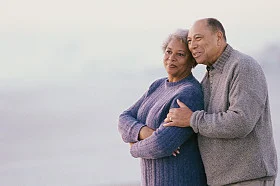Tag: Zoom

The magnitude of the tragedy is unfathomable: Americans have lost nearly 187,000 family members living in nursing homes to COVID-19. Even when residents survive outbreaks in the facilities, their family caregivers experience trauma. Barred from visiting residents during the lockdowns, caregivers observed – on Zoom, over the phone, or from the other side of a…

Last year, millions of older Americans went into hiding to protect themselves from the ravages of COVID-19. Did the isolation take a psychological toll? How did they respond to infrequent contact with friends and family? Researchers in a recent webinar tried to understand the unique phenomenon of loneliness in a modern pandemic. What we know…


